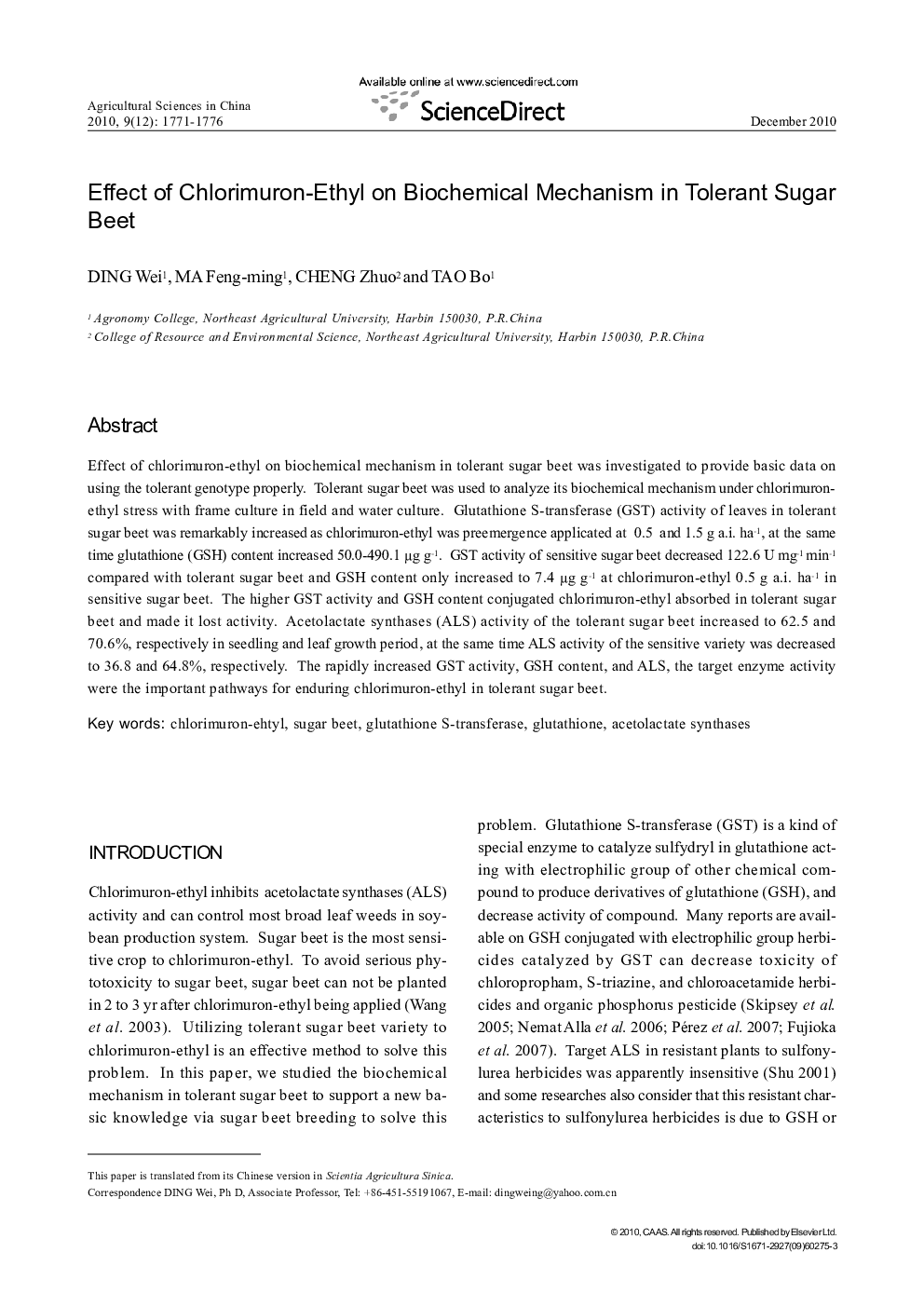| Article ID | Journal | Published Year | Pages | File Type |
|---|---|---|---|---|
| 4489985 | Agricultural Sciences in China | 2010 | 6 Pages |
Effect of chlorimuron-ethyl on biochemical mechanism in tolerant sugar beet was investigated to provide basic data on using the tolerant genotype properly. Tolerant sugar beet was used to analyze its biochemical mechanism under chlorimuron-ethyl stress with frame culture in field and water culture. Glutathione S-transferase (GST) activity of leaves in tolerant sugar beet was remarkably increased as chlorimuron-ethyl was preemergence applicated at 0.5 and 1.5 g a.i. ha-1, at the same time glutathione (GSH) content increased 50.0-490.1 μg g-1. GST activity of sensitive sugar beet decreased 122.6 U mg-1 min-1 compared with tolerant sugar beet and GSH content only increased to 7.4 μg g-1 at chlorimuron-ethyl 0.5 g a.i. ha-1 in sensitive sugar beet. The higher GST activity and GSH content conjugated chlorimuron-ethyl absorbed in tolerant sugar beet and made it lost activity. Acetolactate synthases (ALS) activity of the tolerant sugar beet increased to 62.5 and 70.6%, respectively in seedling and leaf growth period, at the same time ALS activity of the sensitive variety was decreased to 36.8 and 64.8%, respectively. The rapidly increased GST activity, GSH content, and ALS, the target enzyme activity were the important pathways for enduring chlorimuron-ethyl in tolerant sugar beet.
